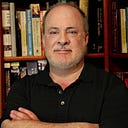Member-only story
Can We Believe in Beliefs Anymore?
I was raised in a Roman Catholic community where most people went to church. Early in my teens it struck me that although most people seemed to be strong believers, outside of church they would talk about non-Catholics with no sense of dissimilarity or inequality. Being Jewish, Baptist, or nothing in particular was no different than being Irish or being an accountant. Our system of beliefs in the most important things in life was just one among others outside of church.
I liked this live-and-let-live attitude. But on another level, I didn’t understand how belief worked (as I did not share my family’s religious sentiments, I had little insight into this). Did this mean that my community didn’t really believe the unique and weighty things they attested to in church? Or was there a superseding belief in tolerance and pluralism? Neither seemed likely.
Looking back, I don’t think this arrangement I observed was anyone’s conscious decision. It was their normal way of living. I do, however, think there was a tacitly accepted, combination of factors at work. On the one hand, my fellow congregants held strong beliefs that on the surface seemed inflexible, but deep down were clearly more adaptable. On the other hand, most people carried an implicit commitment to a well ordered, congenial community. These paired senses of religious and secular beliefs made for easy…
